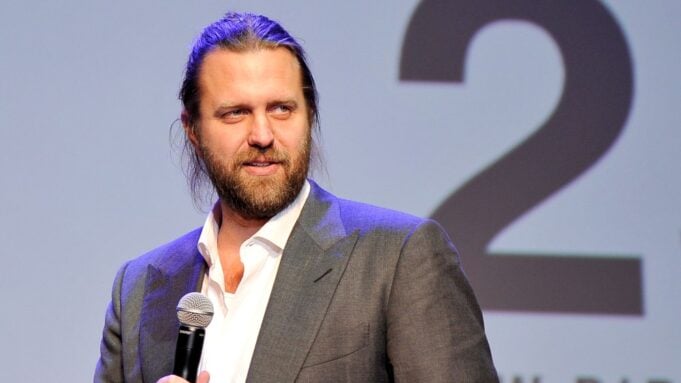Defense lawyers for director Carl Rinsch intend to argue that he was in a “state of psychosis” when he was making “White Horse,” and therefore cannot be found guilty of defrauding Netflix out of $11 million.
In a motion filed on Monday, the defense stated that they intend to call a psychiatrist, Dr. John Mariani, to show that Rinsch was incapable of forming the intent required for a fraud charge.
“Dr. Mariani is also expected to testify that Mr. Rinsch’s mental conditions were likely exacerbated by external factors including the use of prescription stimulants and the psychological impact of the COVID-19 pandemic,” the defense stated.
Rinsch was indicted in March on charges that he spent production funds on crypto and on lavish personal expenses, including two handmade Swedish mattresses worth $650,000. He has pleaded not guilty and is due in court for a hearing on Tuesday.
In a previous arbitration case, Rinsch denied that his erratic behavior was the result of mental illness, saying instead that it was due to his autism spectrum disorder.
“Whatever’s going on there, I can tell you it’s not drug-induced,” he testified at an arbitration hearing. “It’s not mentally ill. It’s exacerbating a different neurotype that most people might not be able to understand.”
As a result of the arbitration case, Rinsch faces an $11.8 million civil judgment.
Love Film & TV?
Get your daily dose of everything happening in music, film and TV in Australia and abroad.
He maintains that he is indigent. He is being represented by the federal public defender’s office, and has asked to be transported to New York at government expense.
Rinsch’s lawyers asked the court to transfer his case to Los Angeles, arguing there is no good reason to try him in New York.
“This is a Hollywood story,” they wrote, noting that Netflix and Rinsch are both based in L.A., that is where the alleged misconduct occurred and that is where the witnesses are. “It is the only convenient place for this trial – this case could not have a stronger connection to California or a weaker connection to New York.”
Netflix invested $55 million to make “White Horse,” which was never completed. The production began in Brazil in 2019, and went over budget. Prosecutors allege that Rinsch misled Netflix when he sought additional funding in 2020, only to gamble the money on risky investments and then use it to buy luxury cars and antique furniture.
Rinsch has maintained that the expenses were connected to the production.
In a separate motion on Monday, the defense sought to suppress the fruits of search warrants for Rinsch’s email accounts and digital devices. The defense argued that the government did not have probable cause that a crime had been committed when it obtained the warrants.
The defense also sought to invalidate five counts of using illicit funds to make a transaction, arguing that the law is unconstitutional. In another motion, the defense argued that prosecutors have not spelled out the precise statements Rinsch made to Netflix that were fraudulent.
“Mr. Rinsch thus remains in the dark as to how exactly he is alleged to have defrauded Netflix,” they wrote, seeking to force the government to spell out its theory in more detail. “Mr. Rinsch cannot adequately prepare his defense to the wire fraud charge without additional information.”
Judge Jed Rakoff previously ordered the U.S. Marshals Service to facilitate Rinsch’s non-custodial transportation to New York to attend the hearing on Tuesday.
A trial is currently set for Dec. 2.
From Variety US































